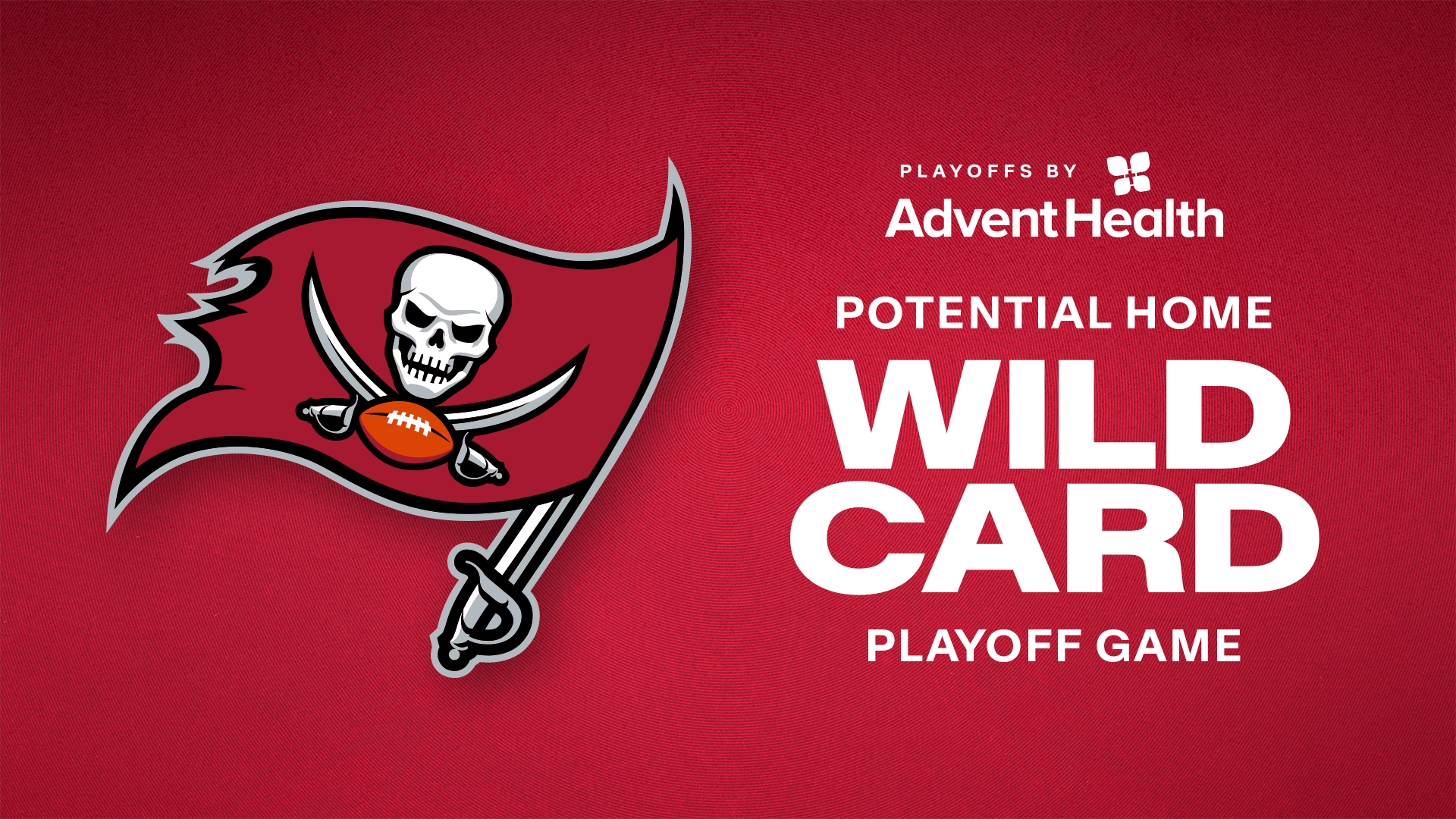On Sunday night as I was ironing my cape in front of the television, the Answer Man witnessed a football player do one of the smartest things I've ever seen in an NFL game.
That player was the Washington Redskins' Chad Morton, and my opinion of his IQ changed drastically within the space of a few seconds during ESPN's Sunday night broadcast of the Baltimore Ravens-Washington Redskins game. For a few moments, I thought Morton had blundered badly, until I discovered that it was me, and not the well-coached Morton, who was on the wrong side of the facts.
Here's what happened:
In the fourth quarter, Chad Morton lined up deep to field a kickoff after a Baltimore field goal had made it 17-10 with 12 minutes left in the game. Wade Richey (on the Ravens' roster specifically for kickoffs, by the way) sent his kick angling toward the sideline on Morton's left.
Morton ran over to intercept it and stepped completely out of bounds. As the ball bounced toward him, he purposely stepped out with one foot while keeping the other one still out of bounds and caught the ball. That move to keep one foot out of bounds, plus his immediate reaction – clapping happily and pointing upfield – made it clear that he knew exactly what he was doing.
Why was Morton so happy after making what appeared to be a boneheaded play, and more importantly, why is the Answer Man bringing it up?
Well, you'll have to see question number seven below for the whole story.
**
- Robby Blackwell of Springfield – which could be anywhere, so we're not guessing a state – asks:
When will Joey Galloway and Joe Jurevicius be activated?
Answer Man: You know, Robby, our friends in the Buccaneers.com editorial office wrote about that very subject Thursday, thanks to Coach Gruden's mention of it after practice on Wednesday. The most succinct way to put the answer is: Most likely some time after the bye week.
The Bucs go to St. Louis this weekend, return home for an October 24 game against Chicago then enjoy their bye during the week ending on Halloween. Both Galloway and Jurevicius – and guard Matt O'Dwyer, by the way – could be back on the field as soon as the Kansas City game on November 7.
Could be. Gruden didn't make any specific predictions, just shared his optimism that any or all of those three might return after the bye. That would seem to indicate that, even if it's not the Kansas City game, it will be somewhere around that time. The Bucs travel to Atlanta for an important intra-division showdown on November 14, so reinforcements would be nice by that weekend.
Anyway, while we're on the subject, please allow the Answer Man clarify a few things. Galloway and Jurevicius are not exactly in the same situation. Galloway is hurt (a groin injury suffered in the season opener) but he's still on the 53-man roster. The Bucs have simply made him one of their eight game-day inactives for each game since the opener, but they haven't put him on any reserve lists. Thus, he doesn't technically need to be activated.
Jurevicius does. He went on the reserve/non-football-injury list before the season after having back surgery near the beginning of training camp. At the time, he was close to returning from the knee injury that knocked him out in Week Two of the 2003 season.
Players who go on the NFI list are not eligible to return to the active roster until at least six weeks of the season have transpired. The St. Louis game will mark the end of the sixth week, so decision time is approaching. If the Bucs activate Jurevicius to the 53-man roster, they will have to release another player. Same with O'Dwyer.
That's a lot of babbling to say, 'Pretty soon,' huh, Robby?
**
- Jim Brumfield of Flower Mound, Texas asks:
**Answer Man, My wife and I were 'original season ticket holders' and had the pleasure of seeing the Bucs' first home victory in person.
The week before, the Bucs had beaten the New Orleans Saints at New Orleans and finally snapped the 0-26 streak.
The following week we were playing the then 'St Louis Cardinals'. As was the norm, they introduced the Cards first (can't remember if they introduced offense or defense) and then instead of introducing the Bucs' offense or defense, the WHOLE TEAM came out to the center of the field led by Dave Pear. The stadium went wild and stayed that way until the end of the game and then they tore down the goal post!
Now my question is, is there a league rule that specifies how it is decided if your offense or defense gets introduced, and since the Bucs chose to have everyone come out did that violate some sort of rule and cost them a fine? I don't recall there being any sort of penalty (in yards) assessed to the Bucs but I've always wondered if it might have cost them some $$.**
Answer Man: Wow, Jim…27 years is a long time to carry a mystery like that around in your head. I feel almost honored to be the one who finally provides the answer, and that's why I printed your very long question in its entirety.
Jim refers to the final game of 1977, when the St. Louis (now Arizona) Cardinals came to visit the Buccaneers in Tampa Stadium. A week before, Buc fans had turned out in the thousands to welcome the team back from New Orleans after the first win in franchise history. The Bucs made it two in a row with a 17-7 downing of the Cardinals.
Emotions were running high, as evidenced by the pregame introductions described by Jim above. Rather than have one side or another introduced man by man, the Bucs came out en masse, celebrating the fact that the team and the community had stuck together through the franchise's very difficult 0-26 start.
Here's the good news, Jim: The Bucs suffered no repercussions for that decision. A team is free to introduce its players in whatever fashion it likes; the current system is basically a convention that works well and is almost always followed.
If a team is going to stick to introducing offense or defense, it can decide which side it wants to introduce on its own accord. Generally, the Bucs switch back and forth, but they might change the order from time to time to fit the situation. For instance, the Bucs were certain to introduce their offense in Oakland, where Tim Brown, Charlie Garner, Rickey Dudley and Matt Stinchcomb were making their returns, just like the Broncos made sure to introduce defense and safety John Lynch in Tampa a few weeks ago. You can also introduce the players within the starting 11 in any order you wish.
The Bucs have even done the full-team introduction recently. They did it for the Super Bowl, in fact (though that was somewhat on the insistence of the network), then did it again for the first home game of the following season, against Carolina on Sept. 14, 2003. Answer Man even remembers a Bucs game a few years back for which a 'starting lineup' of 11 special teams players was introduced.
**
- Aaron Finkelstein of Tampa, Florida asks:
Me and some buddies were watching the game and one of them asked me "If Brad throws a pass into the end zone and the ball bounces of the uprights and a Bucs player catches it, would it be a touchdown?" I said I don't know but I know the person to ask, so I'm asking you.
Answer Man: Spreading the legend of the Answer Man, Aaron? I appreciate that!
Well, I'm guessing you have a good feel for what this answer is going to be. And that answer is no. A forward pass is dead as soon as hits either the goal posts or the crossbar. That situation is described very specifically in the rulebook.
Since there's not much need to elaborate on that one, please allow the Answer Man to share a few (marginally) related facts.
Did you know that the act of standing under the crossbar and leaping up to block a field goal as it comes down through the goal posts, as if one were a basketball player guilty of goaltending, in football is called…goaltending? It's illegal in our sport, too, and is another one of the examples covered under Palpably Unfair Acts. We got into that discussion when we were answering the 'what-if-someone-on-the-sideline-trips-a-player-running-for-a-touchdown' question.
And did you know that it's 10 feet to the top of the crossbar, not the bottom or the middle? And that the crossbar is 18 feet, six inches long? The goal posts are each 30 feet high and between three and four inches in diameter. Even the flags on top of each post are very specifically measured. They must be four inches wide by 42 inches long, for some reason that the Answer Man is never going to try to find out (so don't ask).
**
- George Scott of Cape Coral, Florida asks:
What happens if the Bucs go 6-10, but all 6 wins are in their division?
Answer Man: Maybe y'all should start using emoticons in your e-mails. A little ;-) or :-|| might help me figure out if you're being sarcastic or feeling a bit hostile towards me.
See, with George here I can't tell, and that's why I decided to answer this question, even if it seems obvious to some of you. This e-mail arrived shortly after a Buccaneers.com writer posted a story about the importance of intra-division games last week, looking ahead to the New Orleans contest. I think George might be teasing our editorial staff a bit here for being optimistic in the face of an 0-4 start.
However, it's also possible that George's question is straight and based upon the notion that, as in college football, a conference championship is often determined independent of non-conference record. For instance, Northwestern could go 7-1 in the Big Ten and be crowned conference champs this year despite a 1-2 non-conference mark before the conference games began.
In the NFL, the best way to get into the playoffs is to win a division, and there are more of those chances than ever since the league realigned into eight divisions. Every division winner will also get at least one home game to start the postseason. Head-to-head games in the division often go a long way towards determining who will win the crown.
However, in the NFL, division standings are based on a team's overall record. The Buccaneers, for instance, are currently 1-0 in the division but 1-4 overall and therefore still in fourth place (though only a game out of second). The Bucs could win all six of their division games this year, but if they do so and also finish 6-10, it's enormously doubtful that will be the best record in the division. The Falcons already have four wins, and they have three games left in the division besides their two against the Buccaneers. Even if they lose all of their games, those three wins would go to the Panthers and Saints and push them closer to seven wins.
So what happens if the Bucs go 6-10 with a 6-0 mark in the NFC South? Well, they would miss the playoffs and probably wonder what could have been. :-
**
- Mike from Lakeland, Florida asks:
Dear Answer Man, Last week, you printed a rule from the NFL rulebook which states that a team cannot conserve time inside one minute by intentionally grounding the ball. Wouldn't this make running up under center and "spiking" the ball against the rules?
Answer Man: Mike, on the other hand, didn't need any emoticon help to get his feelings across. I've spared you the yelling by changing the case, but this question originally came through in all caps. Presumably, this was to make his point more emphatically that the Answer Man, or maybe the NFL rulebook, had messed up.
Sorry, but I can't agree. First, my answer in the last column was about intentionally fumbling the ball, not grounding it. To summarize: A team cannot get away with intentionally fumbling the ball out of bounds to stop the clock in the final minute of a half because the penalty would include a 10-second run-off and the clock would start again as soon as the officials spotted the ball. Click here if you want to read the entire exchange on this issue.
Regardless, spiking the ball will not result in a penalty. That action is specifically allowed within the rules for the purpose of stopping the clock. Please note that it must be done right; if you don't take the snap directly from the center, you can't spike the ball without penalty. That rule was clarified for the NFL-watching populace two years ago following the wild ending to San Francisco's playoff win over the Giants (one week before the 49ers came to Tampa and got walloped). When broadcaster Cris Collinsworth suggested that the holder on a botched field goal attempt on third down should have spiked the ball, it later came to light that such a ploy would not have worked. It would have been called intentional grounding.
Anyway, back to your question. Running up under center and spiking the ball is expressly the way the NFL expects you to stop the clock without using a timeout. Here's how it is described in the trusty old rulebook, our new best friend, in Rule 8, Section 3, Article 1, Note 3:
A player under center is permitted to stop the game clock legally to save time if immediately upon receiving the snap he begins a continuous throwing motion and throws the ball directly forward into the ground.
**
- Halcyon Silex of Winter Park, Florida:
Does a player that is elected to the Hall of Fame get to pick what team he is enshrined from, if he's moved on? coughLynchSappcough
Answer Man: First of all, Halcyon, I would have answered your question even if you asked me what color the grass was at Raymond James Stadium. Halcyon Silex is simply the greatest name I've ever heard, no sarcasm intended. You could have a video game named after you. The only way it could be better is if you were from Flower Mound, Texas, like Jim above.
Anyway, I have sort of an unusual answer to your question: It doesn't matter. A player's team affiliation seems to be a big issue in baseball – what cap Nolan Ryan would wear, for instance, was a big deal in 1999 (he chose to be remembered as a Texas Ranger) – but it's not a hang-up with the Pro Football Hall of Fame.
In the NFL, if you played for, say, the 49ers and the Chiefs and you're elected to the Hall of Fame, then you're a Hall of Famer who played for the 49ers and the Chiefs. Marcus Allen had a famous disagreement with the Raiders' Al Davis, for instance, and chose to speak much more about his five years in Kansas City than his 11 seasons in Oakland during his induction. However, he was not made to 'choose' one team or the other, and his page at the Hall's web site has both the Raiders and Chiefs logos.
As Joe Horrigan of the Hall puts it: "In our Hall, an individual is elected simply as a player, coach or contributor."
At the Hall itself in Canton, Ohio, players are represented by busts, and not ones with helmets (though they may have made an exception for Ricky Williams on the increasingly unlikely event that he made the Hall). There's no worry about what cap is going to be worn, and a player's record with all of his teams is displayed.
The Bucs have seen potential Hall of Famers come and go recently, as I get the feeling you may know (can I get you something for your cough?). If – excuse me, when - Tim Brown is elected into the Hall, he will be the second man who played for the Bucs to make it, following Lee Roy Selmon. Of course, he will rightfully be remembered primarily as a Raider.
If John Lynch and/or Warren Sapp end up in the Hall, that will be two more Buccaneers among the all-time greats. One suspects both will speak very fondly of their time in Tampa upon their inductions.
To learn more about the Pro Football Hall of Fame and the selection process for new members, please visit the Hall's rather informative web site.
**
- Richard Schilling of Breingisville, Pennsylvania asks:
In the absence of Mike Pereira's "Official Review" this year, I turn to you, the other guy who can deliver the final word. On a kickoff in the Baltimore-Washington game this week, the return man stepped out of bounds and caught the kick with one foot out of bounds. The ruling was that the ball touched a player who was out of bounds, so the kick was out of bounds, and the Skins got the ball on the 40. I thought that a player who steps out of bounds cannot be the first to touch the ball, making his touching the kick illegal, resulting in penalty yards from the spot he caught the ball. Can you clarify this?
Answer Man: Richard, I think I've answered one of your questions before, but I'm going to have to break another one of my conventions and take this one, too, because as I said, I was watching when that play happened and I was amazed at Morton's quick thinking...once I heard the correct ruling.
I couldn't stop talking about it. The Answer Wife wasn't exactly thrilled. I was enormously impressed that Chad Morton knew this obscure rule and was able to put it into play, and I assumed that he was either a preternaturally intelligent player or extremely well-coached.
So I'll tell you what I did two days later at the office. I quizzed both Jamel White, one of the Bucs' kickoff returners, and Richard Bisaccia, the team's special teams coach, on that very situation. Neither one had seen the game, so neither knew what was coming. White just happened to be in the office on his off day, which was fortunate for me.
And you know what? They both nailed it. Without hesitation. Either this is a rule that most players and coaches know – everybody seemed pretty confused during the Washington game, though – or Bisaccia has also done a fantastic job of coaching up his men.
I described the play above, which initially confused Richard and me and probably a lot of other people. In fact, the Baltimore kick-coverage men figured the same thing Richard and I did at the time – that it was an amazing blunder by Morton. Actually, Richard assumed it was a penalty, which is understandable given that in many instances it is a penalty for a player to go out of bounds and then be the first one to touch the ball. I thought it just meant the ball was out of bounds at that spot, the 15-yard line.
But Morton knew better. Here's the rule, you see: When a return man touches is the first person to touch a kickoff and he is all or partially out of bounds, it is considered the same thing as the ball going out of bounds. I'm not sure why the rule is written that way, but it most definitely is. Both White and Bisaccia knew it instantly when I questioned them.
The result was a penalty against the kicking team and a first down for the Redskins at their own 40, which seemed huge at the time, given the situation. Unfortunately for Washington fans, the 'Skins' offense could do nothing with that field position and the final score was 17-10.
**
Alright, one more...
- Pat Hepfer from Sarasota, Florida asks:
**My husband guessed right on the score in last week's game, but we haven't seen a winner nor has he been contacted that he won. Who won and where do you post it?
Also why isn't Jurevicius coming back on game 7????? We need him NOW!!!!**
Answer Man: Hey, who needs emoticons when we've got exclamation points to spare? We feel you, Pat...the sooner Joe gets back the better. We still remember his last healthy game; were those two touchdown catches in Philly sick, or what?
See above for a more detailed answer on Jurevicius's prospects.
But why isn't he coming back? Well, I guess he's not quite ready yet. His back surgery was just two months ago. But he's getting closer every day and Coach Gruden seems to be anticipating a possible return after the bye week. That would be Game Eight. We'll still need him then.
As to your main question: You're correct, your husband did get the score right. I looked it up, and I can prove it...his name is Steve, right?
The thing is, so did 27 other entrants. And, as the rules of the contest state, when more than one person guesses the score right, one winner will be chosen at random from the correct respondents. That person, unfortunately for the Hepfer clan, was not Steve. It was another Buc fan named Melissa Price.
That information was posted in a story earlier on Thursday called "Score One for the Fans." Each Thursday, Buccaneers.com posts a story running down the winners from the previous week's contests – Guess the Score, Home Team Challenge and Fan of the Week. Usually, we also put a link to that story underneath the Top Story on the home page, as we did this Thursday. I know your e-mail came in on the same day, but perhaps it was after we posted that story.
Please tell Steve to try again. We'd love to get him in the winner's circle before the season is up.



































